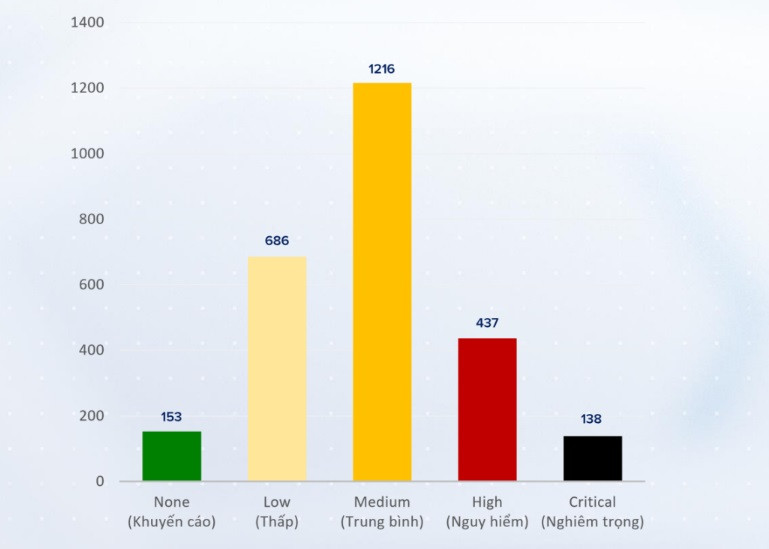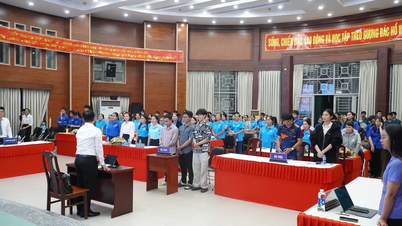Vietnam Cyber Security Company (VSEC) has just released a summary report on the cybersecurity situation in 2023 and trends in 2024.
In 2023, this unit recorded 148,615 incidents and 2,630 security vulnerabilities. Overall, the number of security vulnerabilities discovered in Vietnam is on the rise. Compared to just one year earlier, the number of vulnerabilities discovered by VSEC in 2023 jumped by 21%.

According to VSEC's observations, in 2023, the rate of incidents of unauthorized access and control takeover will account for the largest proportion in Vietnam. This type of information security incident often occurs in banking, finance and insurance enterprises.
Websites seem to be the weakest IT system, as attacks on them currently account for a high proportion, both in the public administration sector and in enterprises. Specifically, the number of incidents from enterprise websites currently accounts for 62%, while in the public administration sector it is about 59%.
According to Mr. Ha Minh Vu, Head of VSEC's Technology Consulting Group, the most common types of cyber attacks in 2023 recorded by this unit are online scams, ransomware, identity theft, corporate email intrusions and DDoS attacks.
Making a forecast, Mr. Ha Minh Vu said that the information security environment in 2024 is assessed to be difficult and will have many fluctuations; the reason is that awareness of cybersecurity vulnerabilities is still lacking in many organizations and businesses in Vietnam.
The types of cyber attacks that will trend in 2024 are ransomware attacks and attacks related to artificial intelligence.
Open source systems, IoT systems, operational systems (OT), cloud computing environments, and corporate email will be common targets for hackers.

In 2023, VSEC received many reports from users, businesses and organizations about file encryption attacks to demand ransom by malware.
Most ransomware attacks result in data loss, which can have serious consequences. Therefore, Mr. Vu pays special attention to this issue, because ransomware attacks will become more sophisticated and complex in 2024.
With the recent rise of artificial intelligence, the Head of VSEC Technology Consulting Group believes that cybercriminals can attack data sources to contaminate machine learning training, leading to biased and inaccurate AI outputs.
In addition to calling impersonating bank employees or police officers like before, hackers are becoming more sophisticated by using Deepfake to impersonate other people, or to combine the scammer's face with an image of a military uniform.
In Vietnam, AI attacks to create fake content such as videos , voices, images, and messages to scam users are increasing. Many people have been attacked in this form and then become victims, having their money, bank account rights, and personal information taken away by scammers.
According to security expert Ha Minh Vu, to protect themselves online, Internet users need to create a habit of “zero trust”, meaning not trusting anyone. Internet users should also regularly use multi-factor authentication and protect their personal data by backing up information in multiple environments.

Source




![[Photo] Cutting hills to make way for people to travel on route 14E that suffered landslides](https://vphoto.vietnam.vn/thumb/1200x675/vietnam/resource/IMAGE/2025/11/08/1762599969318_ndo_br_thiet-ke-chua-co-ten-2025-11-08t154639923-png.webp)






































![[Video] Hue Monuments reopen to welcome visitors](https://vphoto.vietnam.vn/thumb/402x226/vietnam/resource/IMAGE/2025/11/05/1762301089171_dung01-05-43-09still013-jpg.webp)


































































Comment (0)